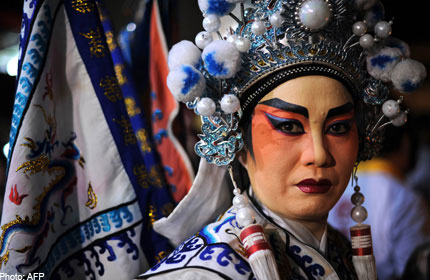
FROM ASIA ONE NEWS
Even as the faithful offer prayers, put on the most spectacular getai shows, and organise lavish spreads to appease wandering souls during the Hungry Ghost Festival, many go through the rites of this Chinese tradition without knowing why the rituals are carried out.
But these rituals can be linked back to early Chinese civilisations, such as the Han Dynasty, a period when Chinese culture and society flourished as emperors created terracotta warriors modelled after their own armies to attend and protect them in the afterlife.
While the early Chinese believed in life after death, they also had a slightly different concept of the dead from modern Chinese today, and the "good brothers" that we often refer to now are not always what they seemed to be in the past.
Professor Lo Yuet Keung, Associate Professor at the Department of Chinese Studies, National University of Singapore pointed out that even though there has always been a universal belief in the human soul, the early Chinese believed that human beings had "dual souls".
The "dual souls" consisted of "po", referring to the intellectual power and mental faculties of a person, and "hun", the human emotions and feelings and source of consciousness.
This dual concept later evolved into a single entity after the introduction of Buddhism into China, and what subsequently came to be known as 'shen', or spirit.
When a person loses his 'po', his behaviour becomes erratic and his reasoning power and judgment suffers, eventually resulting in his death.
Professor Lo explained: "When a person dies a violent death or with grievances, his 'hun' may linger on to cause trouble. "
"The 'hun' then needs to be appeased with appropriate sacrifices."
The idea that a person's 'hun' can remain among the living to cause mischief has contributed to the popularity of the Hungry Ghost Festival, even until today.
"The belief in a unitary soul that could survive death into a new life through reincarnation continues until today in many Chinese communities over the world.
"This is one of the reasons why the Ghost Festival became popular in China in the first place," he added.
The belief that souls linger on after death also led to the early Chinese attempting to summon a deceased person's soul for ancestor worship.
"A spiritual tablet would be set up for him in the family shrine so that if and when a deceased's soul came back, it could dwell within the tablet.
"His family would pay sacrifices to the tablets in the shrine periodically and this is an important part of what we call ancestor worship," Prof Lo said.
No comments:
Post a Comment